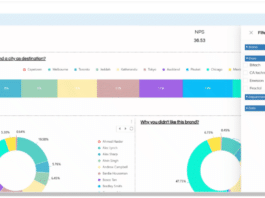Developers using azure cognitive services for face API development can expect some significant improvisations
Microsoft revealed in a blog post that its Face API, part of Azure Cognitive Services, can now identify men and women with darker skin far more successfully than previous iterations of the technology. The face recognition just got better at identifying people with dark skin complexion.
Enhanced capabilities reduces accuracy differences
The updates particularly improve the system’s recognition capabilities for women with darker skin tones, reducing error rates for darker-skinned men and women by as much as 20 times and reducing error rates for all women by nine times.
These technological advancements significantly reduce accuracy differences across the demographics” by expanding facial recognition training data sets, initiating new data collection around the variables of skin tone, gender and age and improving its gender classification system by focusing specifically on getting better results for all skin tones.
Artificial intelligence capabilities
The higher error rates for females with darker skin highlights an industrywide challenge: Artificial intelligence technologies are only as good as the data used to train them. If a facial recognition system is to perform well across all people, the training dataset needs to represent a diversity of skin tones as well as factors such as hairstyle, jewellery and eyewear.
The changes focuses on bias in training data that can result in biased systems, like the underrepresentation of darker skinned women that may lead to AI systems with unacceptable error rates on gender classification tasks
While the eradication of bias in tech systems is a noble cause, the potential surveillance and policing applications of facial recognition in particular gives many critics pause. Microsoft is currently facing a backlash for its relationship with U.S. Immigration and Customs Enforcement (ICE), though the company opposed the border separation policy being enacted by the agency.




